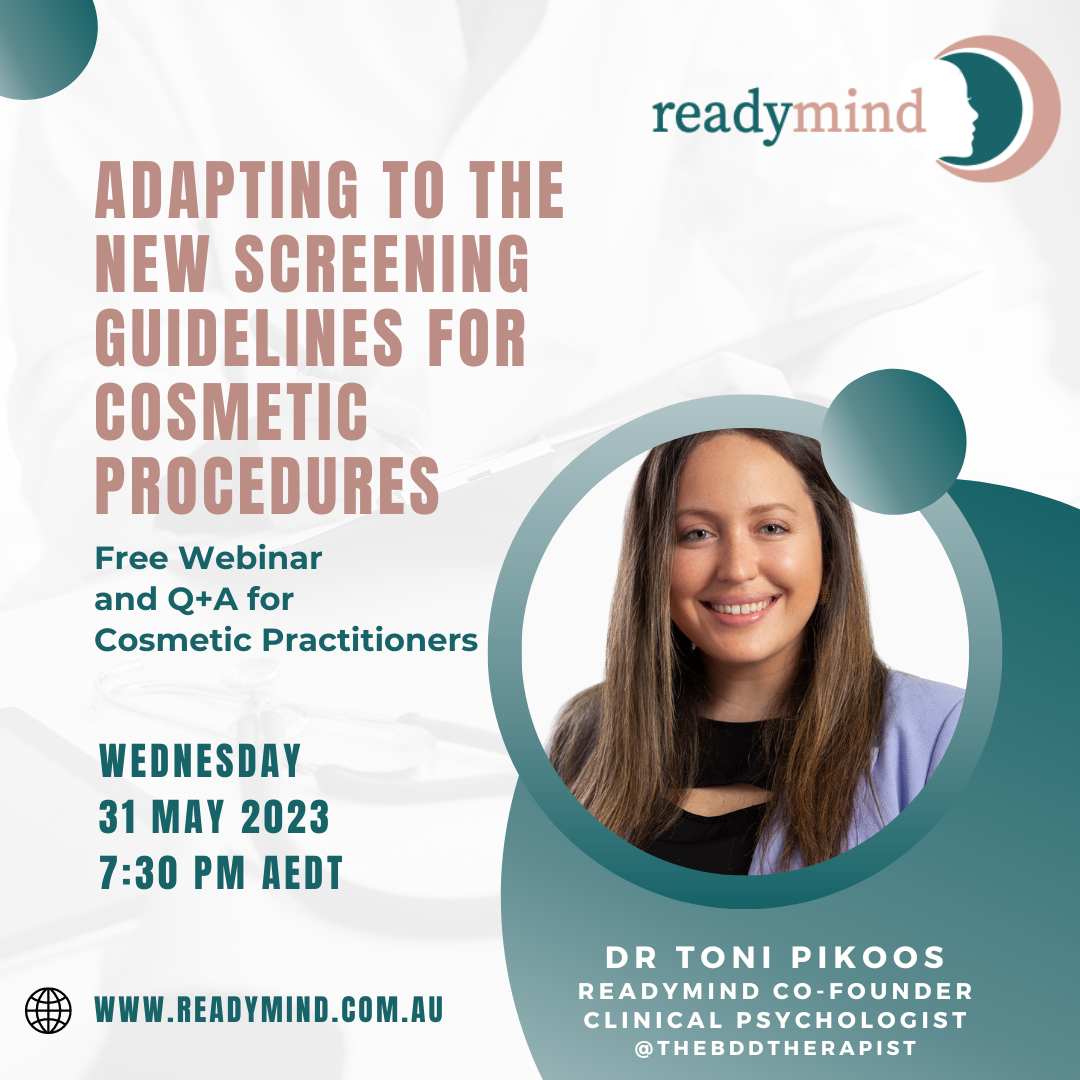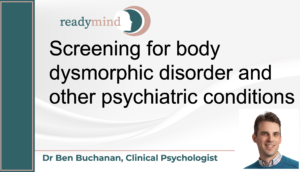The Impact of Psychological Complications on Cosmetic Procedures: A Guide to the AHPRA Guidelines
In a recent webinar Dr. Toni Pikoos, a specialist in body dysmorphic disorder, discussed the psychological complications associated with cosmetic procedures. She shed light on the Australian Health Practitioner Regulation Agency (AHPRA) guidelines and how these guidelines have been informed by psychological issues cosmetic patients often encounter. The primary focus was on the screening process, including the use of validated psychological assessment tools. This article will delve into the key points raised in the webinar and provide insights into the implementation of the AHPRA guidelines in cosmetic practices.
Applicability of the Guidelines
The AHPRA guidelines, released by the Medical Board of Australia, primarily apply to medical practitioners performing cosmetic surgeries and procedures. Although they are officially directed toward registered medical practitioners, the guidelines are considered the industry standard. Nurses working in the cosmetic space are advised to be aware of these guidelines to ensure evidence-based practice. Moreover, prescribers of injectables are required to comply with these guidelines, making it essential for all healthcare practitioners involved in cosmetic procedures to be familiar with them.
Patient Suitability and Screening Requirements
The new guidelines emphasize the assessment of patient suitability for cosmetic surgeries and non-surgical procedures. For major cosmetic surgeries, a referral from the patient’s regular general practitioner (GP) is now mandatory. The medical practitioner performing the surgery must discuss and assess the patient’s motivations for seeking the procedure, considering both external factors (such as pressure from others) and internal factors (like self-esteem issues).
Realistic patient expectations play a crucial role in ensuring positive outcomes. The guidelines require medical practitioners to inquire whether another practitioner has declined to provide cosmetic surgery to the patient. This information is valuable as it may signal underlying issues and highlight the need for further evaluation. Additionally, the medical practitioner must assess the patient for psychological conditions like body dysmorphic disorder (BDD) using a validated screening tool.
Documentation and Referrals
To ensure accountability and continuity of care, the guidelines stipulate that the process and outcome of the psychological assessment should be documented in the patient’s record. This requirement applies to all patients seeking cosmetic surgery, regardless of the presence of ‘red flags’. In cases where psychological issues or a positive BDD screening result indicate the patient may be unsuitable for the procedure, referral for further assessment is necessary.
The responsibility of further evaluation lies with independent professionals such as psychologists, psychiatrists, or general practitioners who are not directly involved in the surgical process. This referral process is essential to provide patients with appropriate care and to address any psychological concerns that may affect the suitability or outcomes of cosmetic procedures.
Non-Surgical Procedures
The guidelines for non-surgical procedures, such as cosmetic injectables, share many similarities with those for cosmetic surgeries. However, the use of a validated BDD questionnaire is not explicitly stated. Nevertheless, utilising validated assessment tools is highly recommended for accurate screening. Medical practitioners offering these procedures must also discuss alternative options with patients, including psychological treatments provided by healthcare professionals.
Implementation and Implications
The recent changes in the AHPRA guidelines highlight a shift from recommendations to requirements. This change reinforces the importance of thoroughly assessing patient motivations, expectations, and psychological states. By incorporating these screening measures, healthcare practitioners aim to minimise the risks associated with cosmetic procedures and ensure patient safety and satisfaction.
The guidelines provide a framework for incorporating psychological assessments into cosmetic practices. They encourage practitioners to collaborate with other healthcare professionals and discuss alternative treatments for patients struggling with body image or self-esteem issues. This multidisciplinary approach allows patients to explore psychological interventions alongside or instead of cosmetic treatments.
For access to the full webinar with Dr Toni Pikoos, see here.



